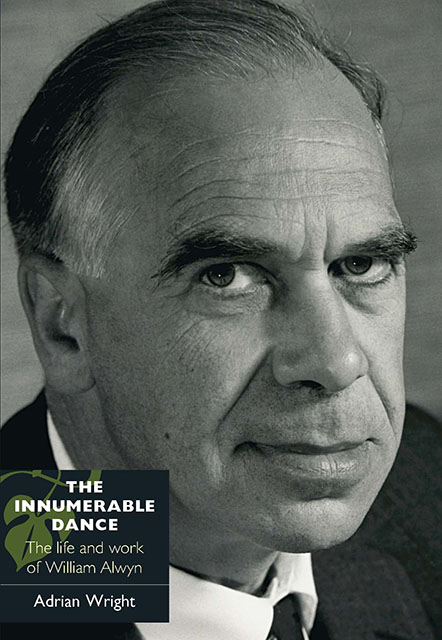Book contents
- Frontmatter
- Contents
- Illustrations
- Preface and Acknowledgements
- Introduction
- 1 Early Closing
- 2 The Music of Northampton
- 3 A Number of Scotsmen
- 4 Olive
- 5 Union and Exile
- 6 A Purpose for Cinema
- 7 A War of his Own
- 8 Is Your Journey Really Necessary?
- 9 A Coming British Woman Composer
- 10 Towards a Festival
- 11 Questions of Inspiration
- 13 The Late Romantic
- 14 E-Day
- 15 Symphonic Reflections
- 16 Soundless Music
- 17 The Other Suffolk Composer
- 18 The Blythburgh Operas
- 19 The Stillness
- 20 Living and Learning
- 21 Precious Toy
- Epilogue
- Notes
- List of Alwyn’s Works
- Discography
- Bibliography
- General Index
- Index of Alwyn’s Works
6 - A Purpose for Cinema
Published online by Cambridge University Press: 10 March 2023
- Frontmatter
- Contents
- Illustrations
- Preface and Acknowledgements
- Introduction
- 1 Early Closing
- 2 The Music of Northampton
- 3 A Number of Scotsmen
- 4 Olive
- 5 Union and Exile
- 6 A Purpose for Cinema
- 7 A War of his Own
- 8 Is Your Journey Really Necessary?
- 9 A Coming British Woman Composer
- 10 Towards a Festival
- 11 Questions of Inspiration
- 13 The Late Romantic
- 14 E-Day
- 15 Symphonic Reflections
- 16 Soundless Music
- 17 The Other Suffolk Composer
- 18 The Blythburgh Operas
- 19 The Stillness
- 20 Living and Learning
- 21 Precious Toy
- Epilogue
- Notes
- List of Alwyn’s Works
- Discography
- Bibliography
- General Index
- Index of Alwyn’s Works
Summary
Alwyn was a five-year-old when first taken to the cinema by Ada. The film was a Western. At the first close-up of a face on the screen he screamed and had to be taken home. This was an ungrateful introduction to a medium that was to provide him with life-long challenges and much material comfort, but his contribution to cinema might have been merely as an orchestral session player if it hadn’t been for a stroke of bad luck waiting for the composer Raymond Bennell. After handing over his score for the film The Future’s in the Air to the production company, Bennell left England, thinking his work done. Alwyn was hired as flautist for the recording sessions, and when the session was over chatted to the film’s director Alexander Shaw. Alwyn must have made an impression on Shaw, for the next day he telephoned Alwyn to say that on playing back the recording, made on light-sensitive film stock, there was no sound. For some reason, Bennell’s absence made it impossible for the score to be re-recorded, and Shaw telephoned Alwyn to ask if he could speedily provide a new score for the film. Whether an inspired choice or a desperate solution, Alwyn did not disappoint, completing the music in the autumn of 1936, and almost immediately established himself in a way of writing for a medium that made use both of his technical ability and facility. No matter that he became a film composer by chance (although it might, of course, have happened in another way at another time), he and the medium came together at a crucial time in British cinema, and perhaps it was only with his first music for films that he realised how he and it had grown up together.
The popularity of concert music and the musical glamour of the Steel-backs could not compare with the more modern sensations on offer in early twentieth- century Northampton. In 1909 three skating rinks opened in the town (Ada was at one time an eager customer who seems to have spent much of the time falling down) but the fascination soon wore thin. A growing interest in films proved more enduring; it said something about the changes of attitude that in 1908 the local Temperance Hall was turned into a cinema.
- Type
- Chapter
- Information
- The Innumerable DanceThe Life and Work of William Alwyn, pp. 65 - 77Publisher: Boydell & BrewerPrint publication year: 2008



